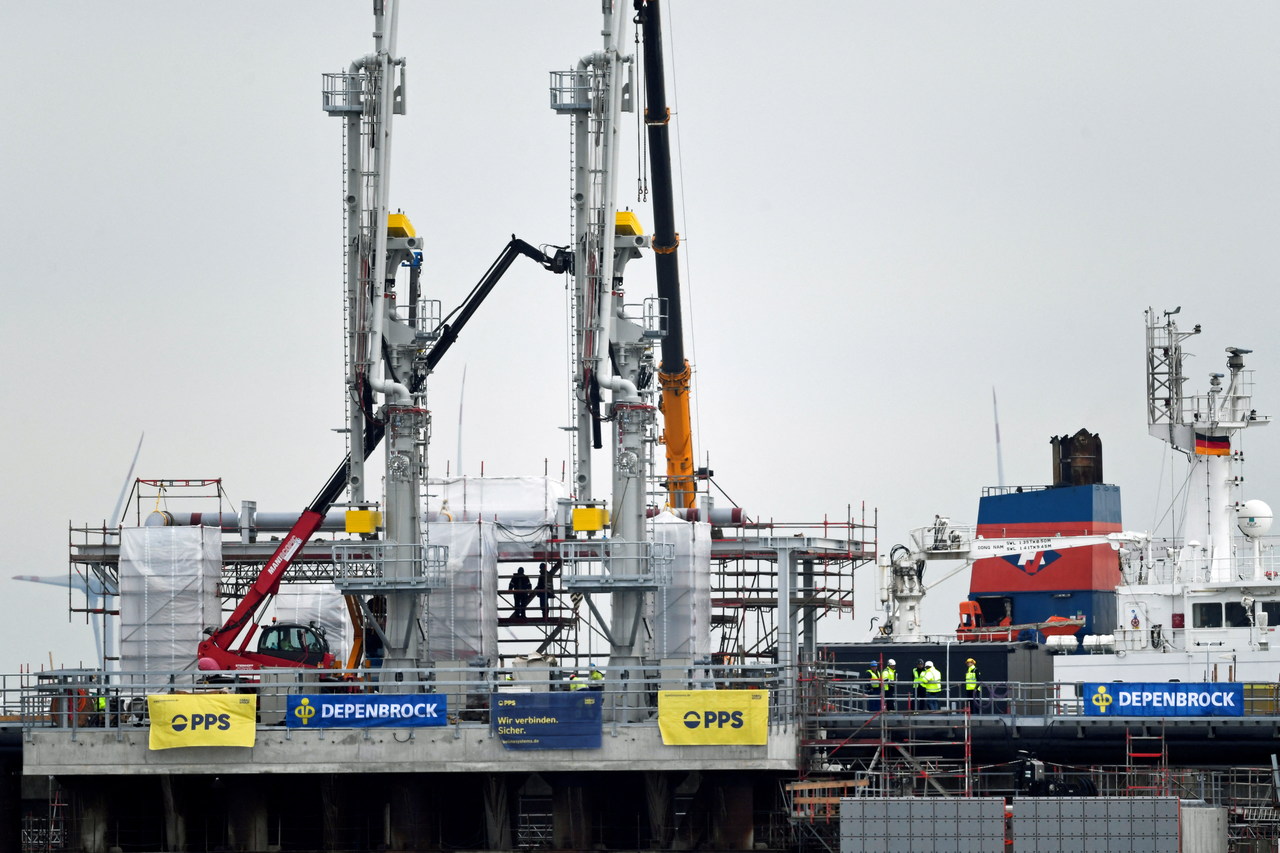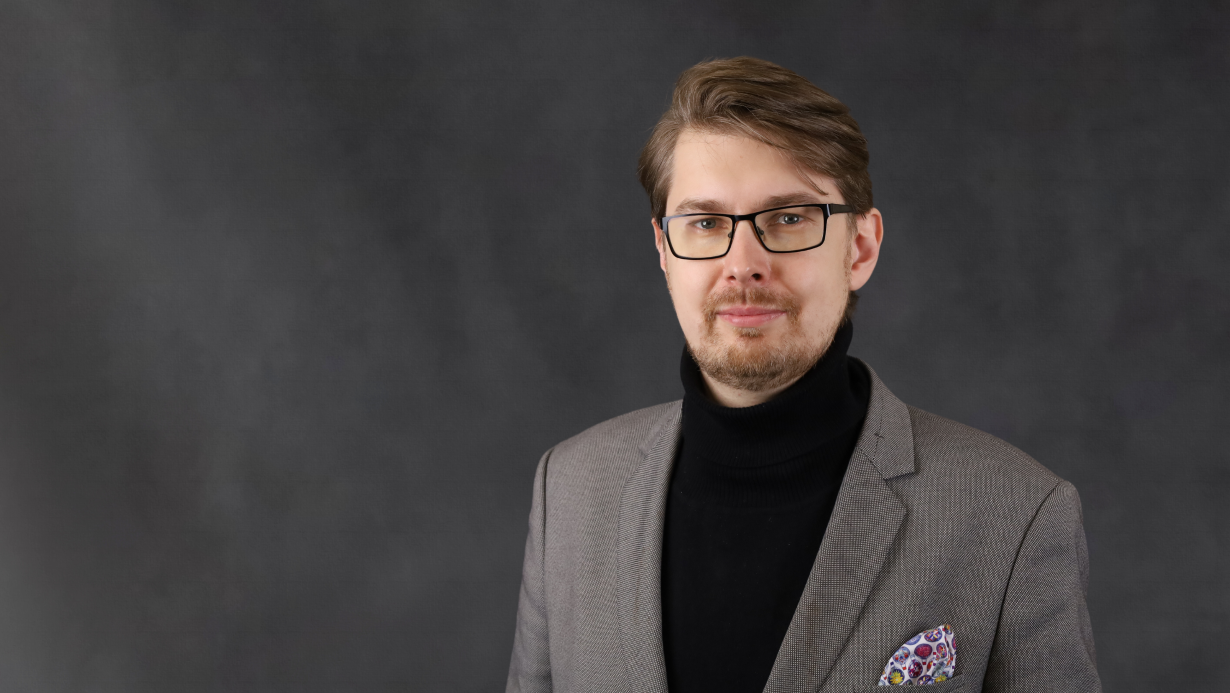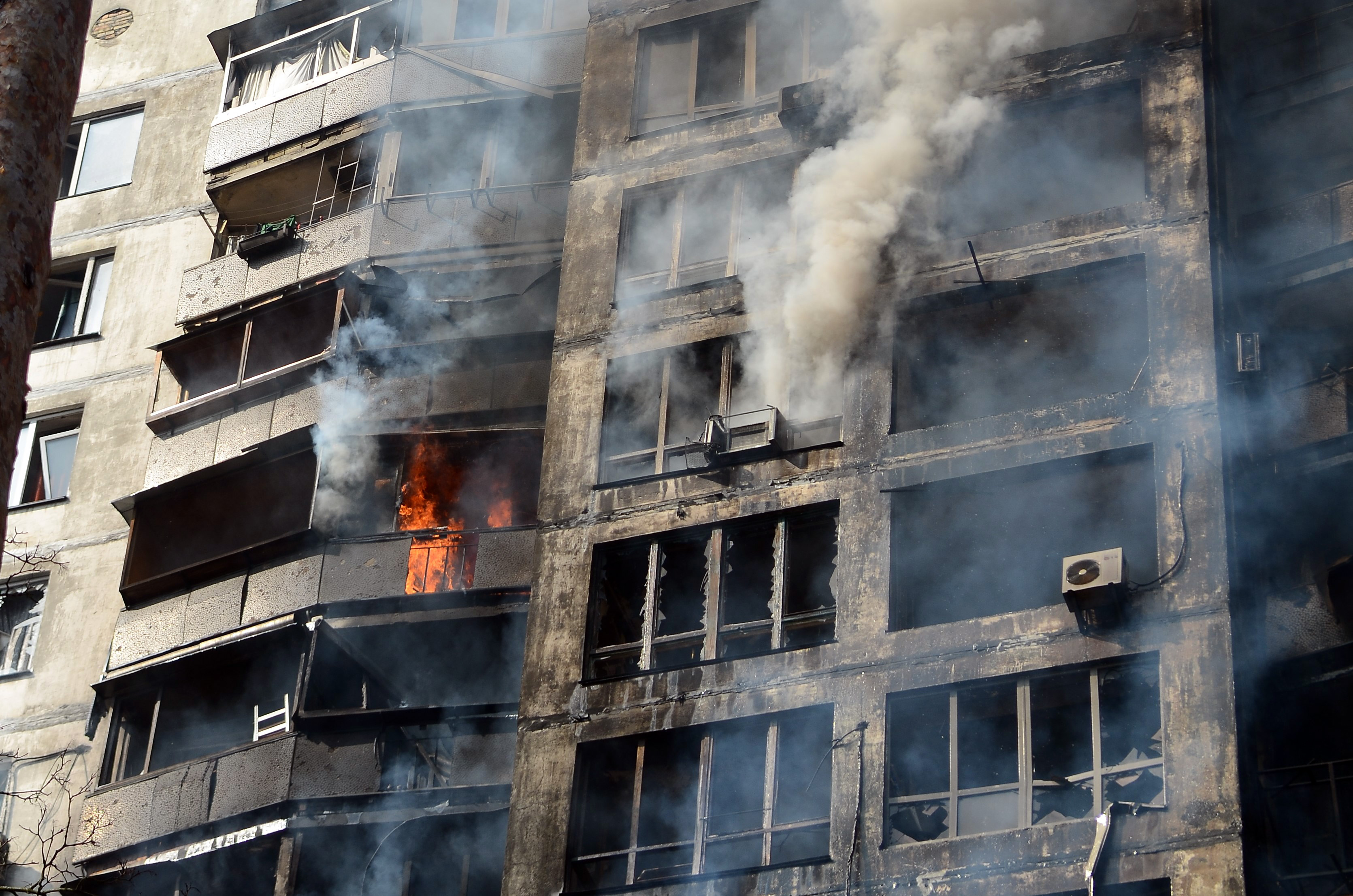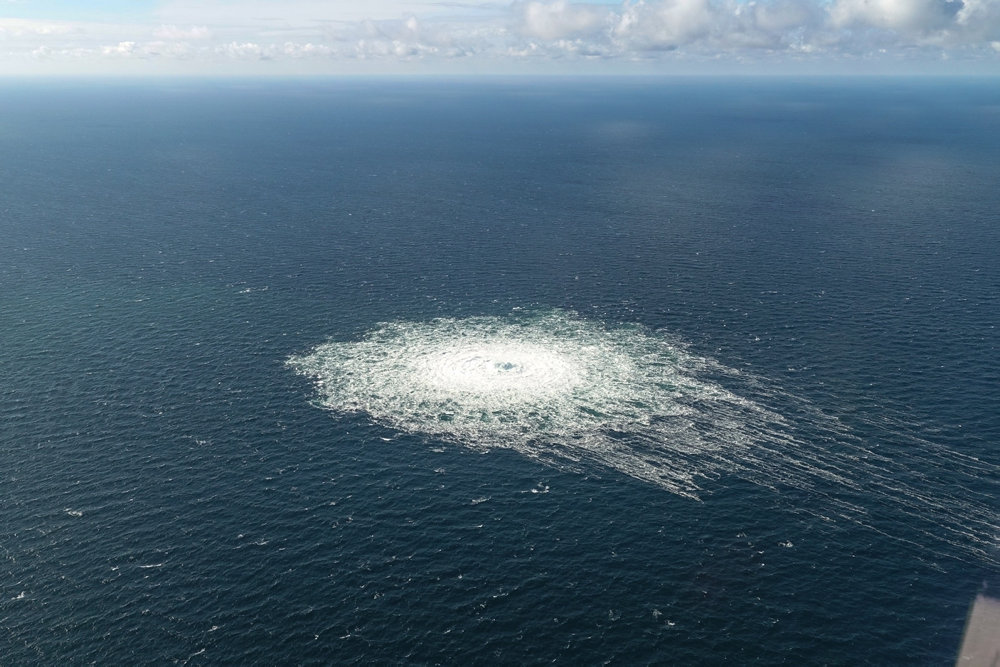Germany Works Towards Independence from Russian Raw Materials
The failure of Germany’s now-discarded Eastern policy has forced it to take steps to increase its resilience to Russian pressure in the area of energy. The biggest and fastest changes are targeting the goal to become independent of Russian raw materials, especially gas. This has required Germany to change its approach to the use of LNG and nuclear power, among other energy sources. The crisis-related rise in energy prices is a major concern for the German public and is affecting the government’s ratings and bolstering the pro-Russian party Alternative for Germany (AfD).
 FABIAN BIMMER / Reuters / Forum
FABIAN BIMMER / Reuters / Forum
Prior to Russia’s full-scale invasion of Ukraine, 55% of the gas, 35% of the oil, and nearly 50% of the coal used in Germany was supplied from Russia. This degree of dependence on supplies from the east stemmed from the perception of Russia as a “reliable supplier” of raw materials and Russian lobbying in Germany. Russian gas also was intended to serve as a transitional fuel to enable the green transformation of the German economy (Energiewende). The Federal Ministry for the Economy and Climate Protection (BMWK) believed that market mechanisms would guarantee security of supply and investment in necessary infrastructure, overlooking the risk of dependence on a single supplier. As a result, Russian companies not only captured the raw materials market but also purchased parts of Germany’s gas pipelines, gas-storage facilities, and the Schwedt refinery.
Crisis Response
Since the start of the invasion of Ukraine, independence from Russian raw materials supplies has become a key element of the changes in German policy announced by Chancellor Olaf Scholz, along with increased defence spending. Germany stopped importing Russian coal in August and backed an EU oil embargo on Russia that will come into effect this December. Replacing coal and oil should not, however, pose a major problem for Germany due to the sufficient supply of substitutes on the global market.
The big challenge is the elimination of Russian gas. Germany opposed the gas embargo proposed by the EU, arguing concerns about the economic repercussions, although it was aiming for a full halt to gas purchases from Russia by the end of 2024. Germany’s dependence on imports of gas from Gazprom dropped to about 26% in June this year, due in part to initial purported technical supply constraints through the Nord Stream pipeline. Since September, damage to Russian gas pipelines in the Baltic Sea (probably as a result of sabotage) means that Germany no longer imports gas via this route, nor from routes through either Poland or Ukraine, and as a result the Germans no longer import gas from Russia.
The German gas pipeline network is limited by the capacity of cross-border connections, which makes it difficult to, among other things, access LNG terminals in other countries. As a result, it has been difficult to quickly find substitutes for Russian gas. A state of alert concerning gas has been in effect in Germany since 23 June. The country is trying to increase gas supplies from other suppliers (Norway, Algeria, Azerbaijan) and replace gas consumption with other energy sources (e.g., renewable energy supplies, RES, or coal) and is undertaking various energy efficiency initiatives to try to reduce gas consumption by 20%. Through an “energy solidarity” agreement, France has been sending gas to Germany since October, with these cross-border shipments expected to intensify. Gas storage facilities in Germany are now nearly 100% full, which, weather permitting, should allow the country to meet the winter demand.
Perspectives on Development
Germany is taking strategic medium- and long-term measures aimed at preventing another energy crisis, while also taking into account the implementation of climate policy.
In order to speed up the construction of LNG terminals, which had been planned for several years, the Bundestag in May passed a special bill that allows faster issuance of the necessary permits for the investment. Since the construction of permanent terminals is time-consuming, the decision was made to lease five floating LNG terminals (FRSUs), two from Greece firm Dynagas, two from Bermuda-registered Höegh LNG, and one from U.S.-based Excelerate Energy. An additional floating terminal is being built by the private company Deutsche ReGas. Port infrastructure at Wilhelmshaven is ready for use, while at Brunsbüttel it is expected to be ready by the end of this year. In 2026, the designated permanent gas port at Brunsbüttel is expected to be operational.
The need to seek new suppliers in the Gulf states has forced Economy and Climate Protection Minister Robert Habeck and his Greens to partially revise their political agenda and emphasise energy security at the expense of their stated commitment to democratic values and human rights. Under a contract with the United Arab Emirates, 137,000 m3 of LNG will arrive in Brunsbüttel this year.
Against the backdrop of rising energy prices, the government has taken two decisions that contradict previously implemented policies. After lengthy discussions within the coalition, the Chancellor decided to extend the life of Germany’s last three operating nuclear power plants, responsible for producing 6% of the country’s electricity, until April 2023. Scholz’s decision represents a compromise between demands to keep the plants operating in future years, as advocated by the FDP, and to close them at the end of this year, as supported by some of the Greens. In a move that has raised objections from other EU countries about compliance with competition rules and putting the German market above Europe’s, Chancellor Scholz announced in October the launch of a €200 billion aid package for consumers and business to combat rising energy costs.
At the same time, despite the deepening crisis, in July the German government passed an amendment to its energy policy containing amendments to five laws that will further accelerate the development of renewable energy. As early as 2030, 80% of Germany's electricity is to be produced from RES (currently it's about 50%). There are concerns, however, that just as Germany has depended on Russian gas, in the case of RES it could fall into the trap of overdependence on China, which already supplies nearly 95% of the solar cells used in Germany and also competes strongly in the market of wind installations.
German Public Opinion and the Energy Policy Change
Energy challenges are causing the greatest concern among the German public. According to an October Deutschland Trend survey for ARD television, as much as 83% of those surveyed are concerned about rising unemployment due to rising energy costs, 39% fear they will not be able to pay their energy bills, and 36% expect power and gas supply disruptions. Despite the government’s actions, 70% of respondents consider efforts to secure the supply of raw materials to Germany to be insufficient.
The view of an energy crisis has also caused a shift in the views of a previously reluctant nuclear public. According to the poll, 56% of respondents support extending the operations of German nuclear power plants and are able to accept their operation in future years. At the same time, 75% of those surveyed are in favour of increased investment in RES and higher energy efficiency, including investments in heat pumps.
Despite high energy prices, the vast majority of respondents (more than 70%) also express a willingness to continue supporting Ukraine. This is probably influenced by news of further war crimes committed by the Russians in Ukraine, as well as the successes of the Ukrainian army.
Conclusions
Germany has made significant changes to its energy model relatively quickly, which indicates determination and flexibility on the part of the political elite, forced by emerging circumstances, as well as their ability to be cooperative. The pace of efforts also demonstrates that, despite technical constraints, rapid changes in the energy sector are feasible, both in terms of the short-term emergency response and in adapting strategies to the needs of the economy.
Problems with the diversification of raw materials have contributed to the evolution of Germany’s previously sceptical attitude toward the demands of Central and Eastern European countries for the elaboration of European energy solidarity. However, greater solidarity does not overcome the differences in interests between the Member States in the field of energy, and can be undermined by unilateral German market interventions, disrupting the competitiveness of the European economy. It will be difficult for Germany to win support from the European Commission for such large state aid, which could hit smaller Member States, including Poland, without intensifying their participation in anti-recession measures at the EU level as well.
Problems in the energy market and pessimistic economic forecasts could lead to an erosion of declared public support for Ukraine. One unfavourable result of the crisis from the point of view of Scholz’s cabinet, as well as Poland, is the rise in support for the AfD, whose main demand is the lifting of sanctions and a return to energy cooperation with Russia, including the launch of the NS2 gas pipeline, which it argues are in the interests of “protecting German families”. The party has risen to fourth in the polls with about 13-15% support, its highest rating since 2020.





